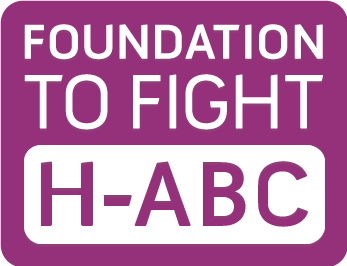3 Things I Want People to Know about Kids with Rare Diseases
Kids with rare diseases (and their families) just want to receive the same kindness, respect, and consideration as anyone else.
With that in mind, here are 3 important things I want people to know and think about…
1) Kids with Rare Diseases Want to Have Friends.
Our kids want to have friends just like yours do! Encourage your child to reach out to kids with rare diseases such as H-ABC in a manner that’s natural—not forced or because it’s the right thing to do.
Children like Elouise can be great pals to other kids, as long as other kids are willing to adjust to certain limitations. There is so much they can do together once they figure out how to communicate!
Many times, I’ve seen parents use us as a means to teach their kids how to give back to those less fortunate. I understand what they’re trying to do. However, if this isn’t done in a natural way, it’s not sincere and it makes it difficult to foster a natural relationship. And, frankly, my child isn’t a teaching exercise. She’s a wonderful, happy little girl who loves people.
2) These Children (and Their Families) Want to Be Included.
Children with rare diseases want to be included, and the same goes for their families. So, please don’t exclude us. Perhaps make that extra effort to include us, even if we turn you down initially. All too often, we are stereotyped. This is likely done unintentionally, but we are.
As the mother of a child with a rare disease, I tend to stay away from others when it comes to social activities. This is only because I don’t fit the mold and my child doesn’t fit in, much less have the ability to participate.
Most people are—on the surface—kind, but unless we are extroverted, parents affected by rare disease typically shy away from others and find solace within our own circles. It’s simply because we are better understood by those who are experiencing the same things or at least familiar with our situation.
Kids with H-ABC vary in terms of their symptoms and abilities. Some have limited obvious symptoms (until they have to move or speak), whereas others have symptoms that are much more apparent.
When in doubt, imagine if your child had a neurological condition. How would you want to be treated?
3) Those Affected by Rare Disease Should Be Accepted and Treated Like Anyone Else.
When you meet kids with rare diseases and their parents or caregivers out and about, please don’t stare.
Initially, I would get really annoyed when people would stare or turn around to look, knowing a child is disabled and curious to see just how afflicted they are. I’ve even experienced someone referring to a child with a neurological condition as “it.”
Those of us affected by rare disease want nothing more than to be accepted and treated like anyone else.
Eventually, I came to realize that people just can’t help it. So, instead of getting upset, I smile and say, “Hello, meet Elouise.”
